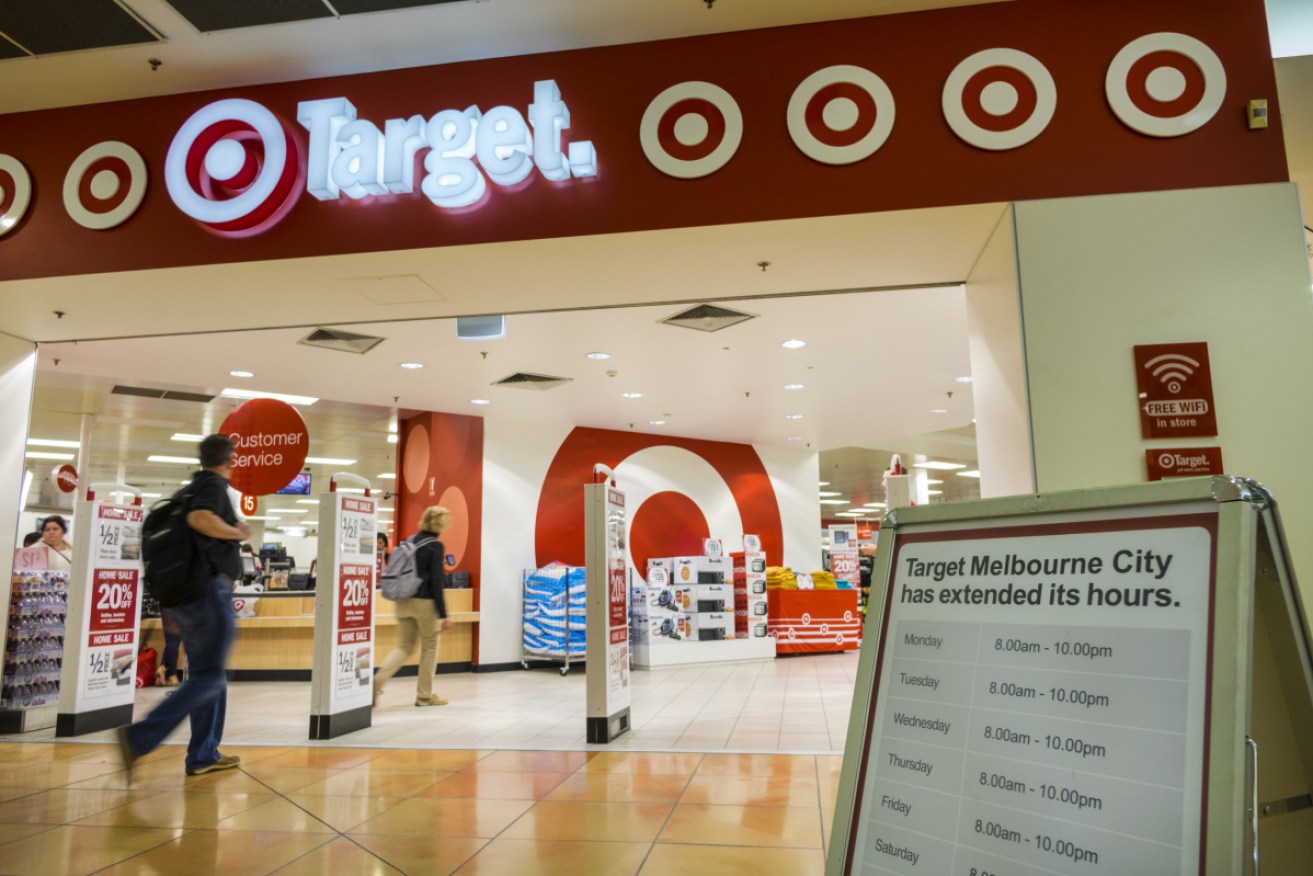Target on course for full-year profit after COVID turnaround


Target is expected to deliver a full-year profit after simplifying its business. Photo: Getty
Target has staged a remarkable turnaround after simplifying its business and profiting from a pandemic-induced sales boom.
In written disclosures to the ASX on Thursday, the budget retailer revealed total sales increased by 2.3 per cent and comparable sales by 13 per cent over the half year ending December 31, 2020.
The strong sales figures came just months after parent company Wesfarmers announced plans to convert or close 167 Target stores following several years of disappointing results.
Wesfarmers managing director Rob Scott said the group had made “good progress” on the ongoing restructure by accelerating the growth of Kmart and improving the performance of Target, which was now expected to deliver a profit for the full financial year.
“Sales and transaction volume uplifts from Target stores that have been converted to Kmart stores continue to be very encouraging, and 19 stores were converted during the half,” he said in a statement.
“Target’s profitability improved significantly, supported by strong demand and the ongoing simplification of the business”.
Tweet from @CommSec
On a combined basis, Kmart and Target delivered revenue of $5.1 billion over the December half and a record earnings result of $502 million excluding significant items.
Kmart delivered strong earnings growth, thanks to higher sales and reduced discounting as a result of COVID-induced stock shortages.
All while Target boosted its profitability by cutting costs, increasing the proportion of full-price sales, and streamlining and improving its product offering.
The department store chain also focused on enhancing its online offering and increased its online penetration to 15.9 per cent for the December half.

Wesfarmers is currently restructuring its Target business. Source: 2021 half-year results
Queensland University of Technology professor Gary Mortimer, who specialises in retail marketing, said the results proved the rightsizing of the Target fleet and accompanying review of its product categories was “a smart strategy”.
“A number of big categories have disappeared from [Target], such as branded cosmetics like Maybelline and Rimmel. That cosmetic department vanished. And I think that was because it was exposed to the likes of Priceline,” Dr Mortimer told The New Daily.
“They also cut their consumer electronics department down to a very limited, private-label, home brand consumer electronics [department]. So they moved away from TVs and sound systems and a lot of the gaming consoles, because that category was exposed to JB Hi-Fi.”
Dr Mortimer said clothes and soft furnishings were driving strong sales for Target now as they had done previously for Kmart.
“And I think it was strategically smart to [convert] some of the Target Country stores [into] K Hubs – where under one roof you’ve got access to click-and-collect products from Target, Kmart and Catch,” he said.

Bunnings was the group’s star performer, reporting $9.1 billion in revenue over the six months to December 31. Photo: Getty
Wesfarmers said in a statement to the ASX that sales were volatile during the second half of 2020 as foot traffic fluctuated in response to changing government restrictions.
The retail conglomerate also noted the pandemic had increased ocean freight charges and made it hard to restock shelves due to disruptions and capacity constraints in global supply chains.
But it said the pandemic overall had been good for business, with demand soaring on the back of government stimulus payments and customers spending more time “working, learning and relaxing at home”.
Excluding significant items, Wesfarmers reported $17.8 billion in revenue over the December half (up 16.6 per cent) and net profit after tax of $1.4 billion (up 14.9 per cent).
The conglomerate declared a fully-franked interim dividend of 88 cents, which was 13 cents higher than the year before.
And Bunnings was its star performer.
The hardware store reported revenue of $9.1 billion in the December half (up 24.4 per cent) while Officeworks reported revenue of $1.5 billion (up 23.7 per cent).








